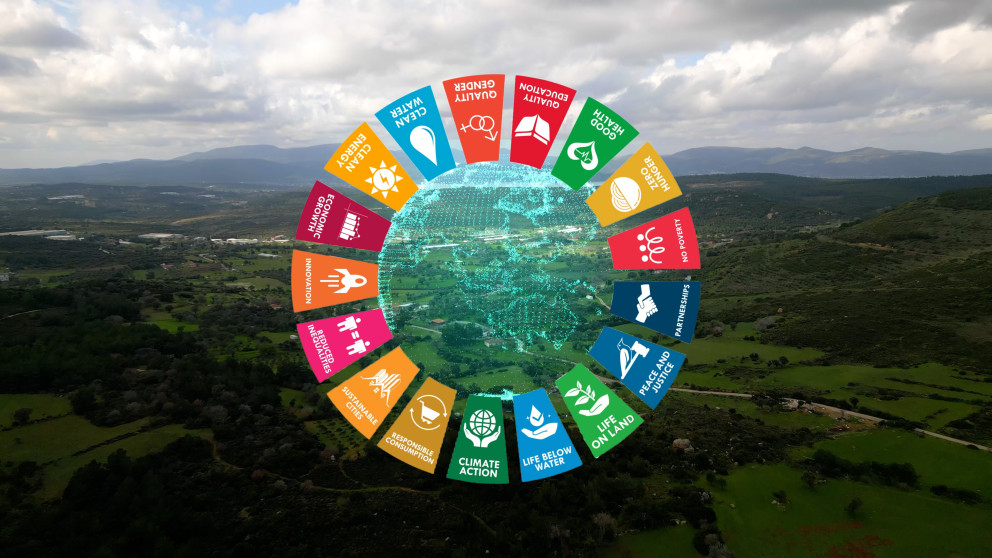Scientists Call for Greater Policy Relevance of IPCC Reports
11.02.2025
In a new study published in the journal Resources, Environment and Sustainability an international team of scientists, including RIFS Research Group Leader Maheswar Rupakheti, calls for efforts to improve the policy relevance of future IPCC reports and tackle climate change and sustainability challenges jointly by engaging with the full spectrum of Sustainable Development Goals (SDGs). The IPCC will convene in Hangzhou, China on 24–28 February to approve the outlines of contributions by three working groups.

IPCC reports provide governments and world leaders with comprehensive assessments of the latest knowledge related to the science of climate change. It takes nearly six years to prepare the reports through a comprehensive process that involves experts and governments. At the 62nd session of the IPCC, member states will discuss the outlines of the seventh assessment reports (AR7), due in 2028-29.
According to RIFS scientist Maheswar Rupakheti, the systematic assessment of the links between climate change and sustainability challenges could promote synergistic actions for both. Incorporating this approach in IPCC reports is crucial for both the current and future sustainability agenda beyond 2030.
Prajal Pradhan (University of Groningen), lead author of the paper, says “This is the time to influence decision-making to holistically link climate change and sustainability issues in the upcoming IPCC reports.” For this study, the texts of all IPCC main reports and special reports published during the 5th and 6th assessment cycles, totaling more than 150 chapters, were carefully analyzed using keywords associated with the SDG targets. The researchers assessed whether all 17 SDGs and their 169 targets are covered in the reports and how they are discussed – whether in positive or negative terms.
Limited SDG coverage in the IPCC reports
Climate change and sustainability cannot be seen in isolation, however the authors’ analysis reveals gaps in the IPCC reports, particularly with respect to the SDGs on gender equality, education, inequality, and health. More attention is also needed for all 169 underlying targets (sub-goals). To address this, the study argues, the different working groups of the IPCC could cooperate more.
According to the study, integrating the SDGs is essential because governments are, above all, interested in development issues. Successfully implementing climate action for a just transition requires an holistic approach that establishes enabling conditions while engaging with development issues. Climate change has negative impacts on several SDGs; at the same time, climate actions can have positive impacts on efforts to achieve sustainability goals. The study reports the synergies and trade-offs. “The SDGs make the impact of climate change tangible”, notes co-author Klaus Hubacek (University of Groningen). “It is not just about rising temperatures; there is also a direct link to people's well-being, which the SDGs emphasize. These development issues resonate more with governments, and this is how they hope to accelerate climate actions”, says Hubacek.
Timing is key
The study was prepared by scientists from fifteen institutions worldwide. Many of the co-authors are either members of the past or current IPCC Bureau or contributors to relevant IPCC processes. With the paper, the researchers aim to provide information to the participants of IPCC P62, and after the approval of the outlines, to working groups preparing contributions to the forthcoming assessment (AR7). The research aligns with the overarching goals of promoting global climate policy and increasing the policy relevance of IPCC reports by better-integrating SDGs into climate action strategies.
“Timing is key”, Hubacek emphasizes. “There has been criticism, for instance, about their [the SDGs] lack of measurability. If the IPCC reports reflect on the SDG targets in a more integrated way, they will contribute to the relevance of SDGs. In doing so, the IPCC reports will also inform the future sustainability agenda beyond 2030.”
Link to study:
- P. Pradhan, S. Joshi, K. Dahal et al., Policy Relevance of IPCC Reports for the Sustainable Development Goals and Beyond. Resources, Environment and Sustainability, Vol. 19 (2025). DOI: https://doi.org/10.1016/j.resenv.2025.100192
Contact

